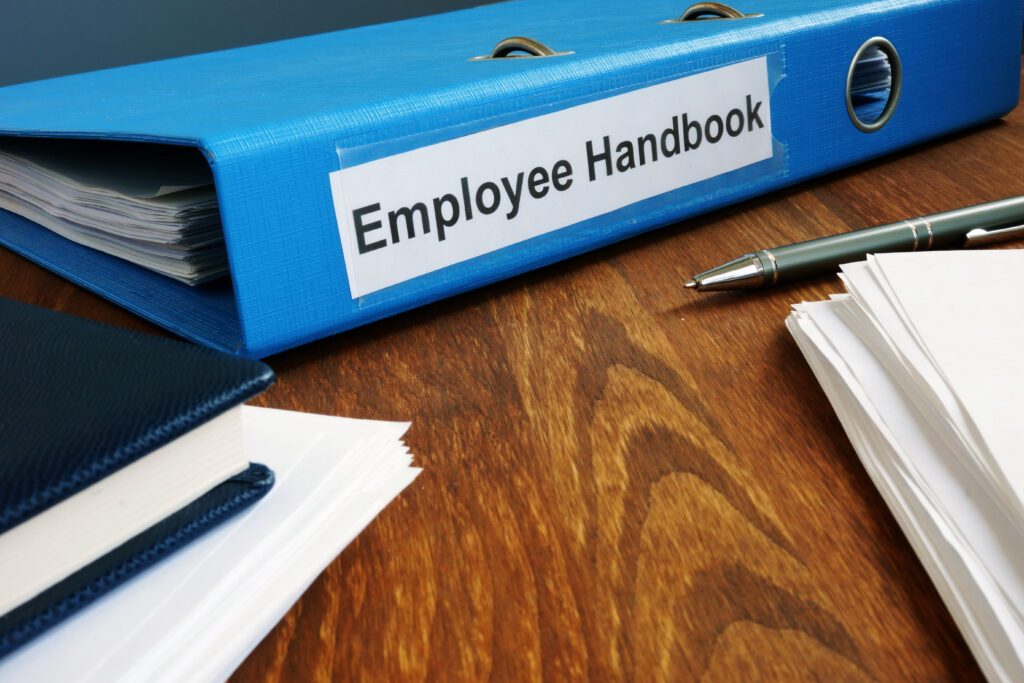BRIAN J GRABER LLC is a pregnancy discrimination and retaliation lawyer representing employees in Illinois, Indiana, and Michigan who are discriminated against in violation of federal pregnancy discrimination law. Pregnant employees in Illinois, Indiana, and Michigan may be protected against pregnancy discrimination under Title VII of the Civil Rights Act of 1964 and the Pregnant Workers Fairness Act.
Title VII Discrimination and Pregnant Workers Fairness Act.
Title VII amended federal employment law to cover pregnancy discrimination as follows:
The terms “because of sex” or “on the basis of sex” include but are not limited to, because of or on the basis of pregnancy, childbirth, or related medical conditions; and women affected by pregnancy, childbirth, or related medical conditions shall be treated the same for all employment-related purposes, including recept of benefits under fringe benefit programs, as other persons not so affected but similar in their ability or inability to work, and nothing in section 2000e-2(h) of this title shall be interpretedt to permit otherwise. . . .
42 U.S.C. 2000e(k)
Title VII, 42 U.S.C. 2000e-2(1) makes it an unlawful employment practice for an employer to discriminate against pregnant employees and applicants:
- failing or refusing to hire;
- compensation, terms, and benefits;
- failing or refusing to promote;
- discharge or termination of employment; or
- harassing a worker because of pregnancy, childbirth, or a medical condition related to pregnancy or childbirth.
The Pregnant Workers Fairness Act (PWFA), 42 U.S.C. 2000gg, went into effect on June 27, 2023. The PWFA requires a covered employer to accommodate an employee’s known limitations related to pregnancy, childbirth, or related conditions unless the covered employer can prove an undue hardship.
Federal Pregnancy Discrimination Laws Only Apply To Covered Employers.
The federal pregnancy discrimination laws under Title VII, 42 U.S.C. 2000e(b), and Pregnant Workers Fairness Act, (PWFA), 42 U.S.C. 2000gg(2)(B)(i), only apply to private employers employing 15 or more employees for each working day in each of the twenty or more calendar weeks in the current or preceding calendar year. A private employer employing less than 15 employees is not covered by federal pregnancy discrimination laws under Title VII and the PWFA.
Claims for violations of Title VII and the Pregnant Workers Fairness Act must be timely filed with the EEOC.
Federal law limits the time an employee or applicant can file claims against their employers for violating their rights under Title VII and the Pregnant Workers Fairness Act. Failure to timely file a Charge of Discrimination with the U.S. Equal Employment Opportunity Commission against your employer can result in your claims being dismissed. Click here to learn the time limits for filing a Charge with the EEOC. In general, you need to file a Charge with the EEOC within 180 calendar days from the day the discrimination took place. The 180 calendar day filing deadline is extended to 300 calendar days if a state or local agency enforces a law that prohibits employment discrimination on the same basis. Federal employees have a different EEO Complaint Process. Click here to learn about the Federal Sector EEO Complaint Process. If you believe you believe your employer violated your rights under Title VII by engaging in pregnancy discrimination or retaliation or violated your rights under the Pregnancy Workers Fairness Act, contact BRIAN J GRABER LLC as soon as possible for a free confidential consultation in Illinois at (312) 291-4648, in Indiana at (219) 232-9011, or in Michigan at (269) 230-6054. Click here to learn how to file a Charge of Discrimination with the EEOC.
The Pregnant Workers Fairness Act may require covered employers to provide reasonable accommodations to workers with known limitations related to pregnancy, childbirth, or related medical conditions.
The Pregnant Workers Fairness Act (PWFA), 42 U.S.C. 2000gg-1 states that it shall be an unlawful employment practice for a covered entity to –
- not make reasonable accommodations to the known limitations related to the pregnancy, childbirth, or related medical conditions of a qualified employee, unless such covered entity can demonstrate that the accommodation would impose an undue hardship on the operation of the business of such covered entity;
- require a qualified employee affected by pregnancy, childbirth, or related medical conditions to accept an accommodation other than any reasonable accommodation arrived at through the interactive process referred to in section 2000gg(7) of this title;
- deny employment opportunities to a qualified employee if such denial is based on the need of the covered entity to make reasonable accommodations to the known limitations related to the pregnancy, childbirth, or related medical condition of the qualified employee;
- require a qualified employee to take leave, whether paid or unpaid, if another reasonable accommodation can be provided to the known limitations related to the pregnancy, childbirth, or related medical conditions of the qualified employee; or
- take adverse action in terms, conditions, or privileges of employment against a qualified employee on account of the employee requesting or using a reasonable accommodation to the known limitations related to the pregnancy, childbirth, or related medical conditions of the employee.
The Pregnant Workers Fairness Act defines the term “qualified employee” as follows:
“. . . means an employee of applicant who, with or without reasonable accommodation, can perform the essential functions of the employment position, except that an employee or applicant shall be considered qualified if – (A) any inability to perfrom an essential function is for a temproary period; (B) the essential fanction could be perfromed in the near future; and (C) the inability to perform the essential function can be reasonably accommodated. . .
42 U.S.C. 2000gg(6).
The PWFA defines the term “known limitation” as follows:
. . . means physical or mental condition related to, affected by, or arising out of pregnancy, childbirth, or related medical conditions that the employee or employee’s representative has communicated to the employer whether or not such condition meets the definition of disability specified in section 3 of the Americans with Disabilities Act of 1990 (42 U.S.C. 12102)
42 U.S.C. 2000gg(4).
The bottom line is that a covered employer is obligated to provide pregnant employees with “reasonable accommodations” as a result of limitations related to pregnancy, childbirth, or related medical conditions unless the employer can prove an “undue hardship.” The PWFA, 42 U.S.C. 2000gg(7) states that the terms “reasonable accommodations” and “undue hardship” have the same meanings given such terms in the Americans with Disabilities Act, 42 U.S.C. 12111.

Requesting Accommodations under the Pregnant Workers Fairness Act.
Generally, there are no magic words required to request a reasonable accommodation from a covered employer. A reasonable accommodation request does not need to be in writing. Since requesting a reasonable accommodation from a covered employer can result in litigation, it is strongly suggested that the request be in writing, such as an email or the covered employer’s request form, and include a doctor’s note.
Any request for a reasonable accommodation made to a covered employer should be linked to pregnancy, childbirth, or related medical conditions. A specific accommodation request is not required. However, a particular request for accommodation can speed up the interactive process with the employer to find a reasonable accommodation.

The Pregnant Workers Fairness Act, 42 U.S.C. 2000gg(7), borrows the definition of “reasonable accommodation” from definitions under the Americans with Disabilities Act. The term “reasonable accommodation” is defined as follows:
(A) making existing facilities used by employees readily accessible to and usable by individuals with disabilities; and (B) job restructuring, part-time or modified work schedules, reassignment to a vacant position, aquisition or modification of equipment or devices, appropriate adjustment or modifications of examinations, training materials or policies . . . .
42 U.S.C. 12111(9).
The Pregnant Workers Fairness Act, 42 U.S.C. 2000gg(7), borrows the definition of “undue hardship” from the definitions under the Americans with Disabilities Act. The term “undue hardship” is defined as follows:
“undue hardship” means an action requiring significant difficulty or expense, when considered in light of the factors set forth in subparagraph (B) of this paragraph.
42 U.S.C. 12111(10)(A).
Under 42 U.S.C. 12111(10)(B), in determining whether an accommodation would impose an undue hardship on a covered entity, factors to be considered include:
- The nature and cost of the accommodation needed under this chapter;
- the overall financial resources of the facility or facilities involved in the provision of the reasonable accommodation; the number of persons employed at such facility; the effect on expenses and resources, or the impact otherwise of such accommodation upon the operation of the facility;
- the overall financial resources of the covered entity; the overall size of the business of a covered entity with respect to the number of its employees, the number, type, and location of its facilities; and
- the type of operation or operations of the covered entity, including the compensation, structure, and functions of the workforce of such entity; the geographic separateness, administrative, or fiscal relationship of the facility or facilities in question to the covered entity.
The burden of proof is on the covered employer to prove that a reasonable accommodation is an undue hardship.
Duty to communicate the need for a reasonable accommodation to a covered employer.
Under the PWFA, 42 U.S.C. 2000gg(4), the employee or applicant has a duty to communicate to the covered employer the need for a reasonable accommodation for a limitation related to a physical or mental condition related to, affected by, or arising out of pregnancy, childbirth, or related medical conditions. The employee handbook is generally the best place to start to determine the identity of the person or department to whom the request for reasonable accommodations should be directed. Usually, the requests for accommodations are made to human resources. If there is no employee handbook or human resources department, the communications for reasonable accommodations should be directed to your supervisor. It is strongly suggested that any request for a reasonable accommodation be in writing in the event litigation becomes necessary.

Under 42 U.S.C. 2000gg(4) allows an employee’s representative, who can be a spouse, family member, or significant other, to communicate to the covered employer the employee’s need for a reasonable accommodation for a physical or mental condition related to, affected by, or arising out of pregnancy, childbirth, or related medical conditions.
Covered Employer’s Good Faith Efforts Limitation on Damages.
A covered employer has an incentive to engage in good faith in the interactive process with the employee requesting a reasonable accommodation to limit its exposure to damages in litigation. Under the Pregnant Workers Fairness Act, a covered employer can raise a good-faith affirmative defense to damages as follows:
. . . if an unlawful employment practice involves the provision of a reasonable accommodation pursuant to this chapter or regulations implementing this chapter, damages may not be awarded under section 1981a of this title if the covered entity demonstrates good faith efforts, in consultation with the employee with known limitation related to pregnancy, childbirth, or related medical conditions who has informed the covered entity that accommodation is needed, to identify and make a reasonable accommodation that would provide such employee with an equally effective opprtunity and would not cause an unde hardship on the operation of the covered entitiy.
42 U.S.C. 2000gg-2(g).
This appears to be a complete defense to damages awardable under 42 U.S.C. 1981a. This is why you want to make sure that the interactive process seeking any reasonable accommodations under the Pregnant Workers Fairness Act is well documented in writing, if possible.
Prohibitions against retaliation and coercion.
It is a violation of the Pregnant Workers Fairness Act for a covered employer to retaliate against its employees as follows:
No person shall discriminate against any employee because such employee has opposed any act or practice made unlawful by this chapter or because such employee made a charge, testified, assisted, or particiated in any manner in an investigation, proceeding, or hearing under this chapter.
42 U.S.C. 2000gg-2(f)(1).
It is a violation of the Pregnant Workers Fairness Act for a covered employer to engage in coercion against its employees as follows:
It shall be unlawful to coerce, intimidate, threaten, or interfere with any individual in the exercise or enjoyment of, or on account of such individual having exercised or enjoyed, or on account of such individual having aided or encouraged any other individual in the exercise of enjoyment of, any right granted or protected by this chapter.
42 U.S.C. 2000gg2(f)(2).
The anti-retaliation and anti-coercion provisions of the Pregnant Workers Fairness Act appear to provide broad protections to covered employers’ employees.
Title VII of the Civil Rights Act of 1964, prohibiting pregnancy discrimination, includes its own anti-retaliation provisions, which state as follows:
It shall be an unlawful employment practice for an employer to discriminate against any of his employees or applicants for employment, for an employment agency, or joint labor-managment committee controlling appreniceship or other training or retraining, including on the job training programs to discriminate against any individual, or for a labor organization to discriminate against any member thereof or applicant for membership because he has opposed any practice made an unlawful employment practice by this subchapter or because he has made a charge, testified, assisted, or participated in any manner in an investigation, proceedding, or hearing under this subchapter.
42 U.S.C. 2000-3(a).

Under Title VII of the Civil Rights Act, it is a violation of federal law to discriminate against pregnant employees and applicants. Under the Pregnant Workers Fairness Act, a covered employer has an obligation to provide reasonable accommodations to pregnant employees and applications for limitations arising out of pregnancy, childbirth, and related medical conditions unless it can prove an undue hardship. If you believe your rights were violated under federal pregnancy discrimination laws, contact BRIAN J GRABER LLC, a pregnancy discrimination and retaliation lawyer, for a free confidential consultation in Illinois at (312) 291-4648 or Indiana at (219) 232-9011, or in Michigan at (269) 230-6054 or by email.
The Pregnant Workers Fairness Act does not preempt any other federal law or State Law.
The Pregnant Workers Fairness Act, 42 U.S.C. 2000gg-5(a)(1) does not preempt any other federal laws or any State laws providing greater or equal protections for individuals affected by pregnancy, childbirth, or related medical conditions. Therefore, employees in Illinois can bring claims under both the Pregnant Workers Fairness Act and the Illinois Human Rights Act, which provide broader protections for pregnancy accommodations. Click this link to learn more about your rights under the Illinois pregnancy accommodations law.
If you believe your rights under federal law to be free from pregnancy discrimination and retaliation were violated by your employer, contact Brian J Graber LLC, a pregnancy discrimination and retaliation lawyer for a confidential free consultation in Illinois at (312) 291-4648 or Indiana at (219) 232-9011 or in Michigan at (269) 230-6054 or by email.
